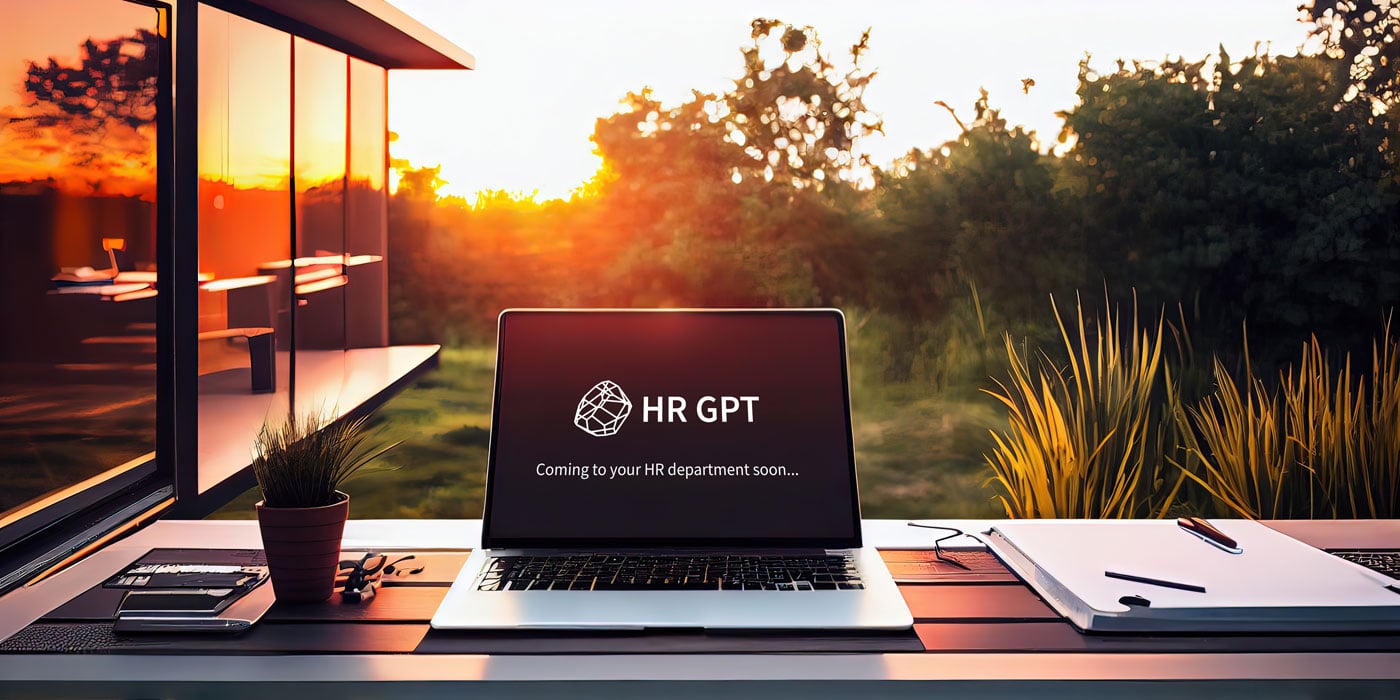
There is a lot of focus on AI these days, with the introduction of ChatGPT. The technology seems to be impacting and disrupting almost all industries and professions, including HR. While there are already many AI-based solutions available within HR, such as Applicant Tracking Systems (ATS), the potential impact of AI in the sector is only just beginning to be realised. In this article, we'll explore six key areas where we believe AI, specifically Large Language Models (LLMs) like Chat GPT, could make a significant impact on HR-tech in the near future.
1. Recruitment
AI and Machine Learning is already widely used in the recruitment process, but LLMs like Chat GPT can take it one step further. They can help generate job descriptions and requirements for technical roles that are unfamiliar to HR managers, saving valuable time and effort. Additionally, Chat GPT can assist in formulating role-specific interview questions, especially useful for technical positions.
2. Employee and Pulse Surveys
Employee and pulse surveys, provide valuable insights into employee satisfaction and engagement levels. LLMs can generate custom follow-up questions that are tailored to an employee's history, profile, background, and job role. This provides managers with additional relevant information that they can use to address any issues that arise.
3. Learning and development
The amount of resources spent on creating learning materials and setting up training courses is typically a very time-consuming task and it becomes increasingly difficult when the topic is very technical or uncommon. However, a LLM can help simplify the process of creating learning materials and setting up training courses. By asking the AI to tailor the training material to the individual employee, the material can be custom made, matching their competence level, experience, and background with the topic.
4. Performance Management
The field of Performance Management has historically always been very focused on numbers, scales, and rankings. However, AI can take into account a wide range of different factors and data-sources, when evaluating an employee's performance. For example, it can consider results/outcomes from their work, KPIs, and feedback from managers and employees. Additionally, AI can potentially help predict if a performance goal is achievable or too ambitious based on historical data.
5. Self service
HR departments often spend a lot of time on fetching information for employees. By implementing a chatbot powered by ChatGPT, employees can ask any type of question and receive immediate answers. For example, questions like “How much vacation do I have left?”, or “When do I receive my next paycheck?” can be answered instantly without the need to search or tally up.
The chatbot can also supply top management with information such as retention rates or recruitment numbers without requiring HR to dig up or put together a report.
6. Data analysis
Finally, AI will become even better at analysing data and providing that data to employees, middle managers, and top management. Not only will the system be able to spot trends and patterns, but it will be able to take many more types of data into account, like text and images.
But can we trust the AI?
While AI has the potential to transform HR, it is important to consider ethical implications and regulation. Regulations on both government and corporate levels will be necessary to ensure that AI is used responsibly. Additionally, transparency in AI algorithms is crucial for verifying the integrity of the AI, and ensuring it is unbiased, fair, and free from negative stereotypes.
Should HR start using AI?
In summary, AI is here to stay, and it has the potential to revolutionise HR, starting from recruitment and performance management through to data analysis and employee self-service. By embracing this technology responsibly, HR professionals can help create a more efficient, effective, and fair workplace.
But remember that AI is not the first (or second) step you should take in your digitalisation journey. Even the best AI won’t add value to your organisation if you don't have good employee master data or quality HR processes in place. So, my advice would be to think of AI as one of the latter steps in your digitalisation journey – and do not rush to get there, because the technology could take time to perfect and become ethically and technologically viable.
Lets connect
Want to know more about digitalisation of HR and AI? Connect with me on LinkedIn or send an email to info@catalystone.com

